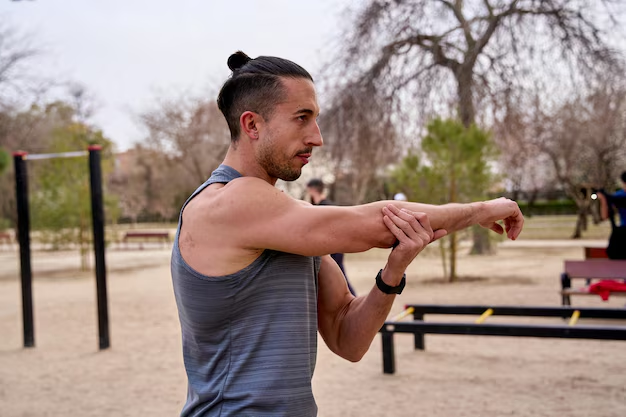Unlocking Stronger Bones: Strategies to Reverse Osteoporosis
In a world where everyone strives to maintain a fit and healthy lifestyle, osteoporosis remains a significant concern, especially as we age. The good news? With the right strategies, lifestyle changes, and understanding, you can work towards reversing osteoporosis and strengthening your bones.
Understanding Osteoporosis
What is Osteoporosis?
Osteoporosis is a condition characterized by weak and brittle bones, which makes them more susceptible to fractures. It often goes unnoticed until a minor trauma results in a bone fracture. While it’s more common in older adults, especially postmenopausal women, it can affect individuals at various life stages.
Why Does It Matter?
When left unchecked, osteoporosis can lead to severe health problems, impacting mobility, independence, and quality of life. Understanding why it happens and how to counteract it is crucial for maintaining a vibrant, active lifestyle.
Factors Contributing to Osteoporosis
Genetic and Lifestyle Influences
Several factors can prompt bone density reduction:
- Family History: Genetics play a substantial role. A family history of osteoporosis increases risk.
- Dietary Choices: Inadequate intake of calcium and vitamin D, critical nutrients for bone health, can lead to osteoporosis.
- Physical Activity: Sedentary lifestyles contribute to bone weakness over time.
- Age and Gender: Women, especially those over 50, are more likely to develop osteoporosis.
Hormonal Changes
For women, menopause brings a drop in estrogen levels, accelerating bone loss. Men, too, can experience bone density decrease due to reduced testosterone levels as they age.
Steps to Reverse Osteoporosis
Boosting Bone Health Through Nutrition
Calcium and Vitamin D
One of the most straightforward strategies is increasing calcium and vitamin D intake. Calcium supports healthy bone structure, while vitamin D enhances calcium absorption.
- Calcium-Rich Foods: Incorporate dairy products, leafy greens, almonds, and canned fish with bones into your diet.
- Vitamin D Sources: Leverage sunlight exposure for natural vitamin D synthesis. Eat fatty fish, egg yolks, and fortified foods to ensure adequate intake.
Importance of a Balanced Diet
In addition to calcium and vitamin D:
- Proteins: Essential for bone repair and maintenance. Incorporate lean meats, beans, and nuts.
- Vitamin K: Found in leafy greens, it plays a role in bone mineralization.
- Magnesium and Zinc: These minerals support bone density. Find them in nuts, seeds, and whole grains.
Weight-Bearing Exercises
Exercise is vital in reversing osteoporosis. Engaging in regular weight-bearing exercises stimulates bone growth and strengthens muscles.
- Walking and Jogging: Simple activities that have significant impacts on bone health.
- Strength Training: Use weights or resistance bands to enhance muscle strength and increase bone density.
- Yoga and Pilates: Improve balance and flexibility, reducing fall risk and promoting bone health.
Supplements: A Consideration
While a well-balanced diet is ideal, supplements can help fill nutritional gaps. Always consult a healthcare provider before starting any supplement, ensuring it fits with your overall health plan.
Lifestyle Modifications
- Avoid Smoking and Excessive Alcohol: Both have detrimental effects on bone health.
- Limit Caffeine Intake: High levels of caffeine can interfere with calcium absorption.
Embrace Bone Density Testing
If you're at risk, bone density tests can help in the early detection and monitoring of osteoporosis. It's a proactive step in managing your bone health effectively.
Innovative Approaches and Therapies
Emerging Treatments
Recent advancements offer promising options:
- Medications: New drugs can help reinforce bone density and slow down bone loss.
- Hormone Replacement Therapy (HRT): Beneficial for postmenopausal women, though not suitable for everyone.
Alternative Therapies
From acupuncture to herbal supplements, alternative therapies can complement traditional treatment methods. However, ensure these align with established medical guidance.
Debunking Myths and Misconceptions
Osteoporosis is Only for the Elderly
Contrary to popular belief, osteoporosis can affect people at various ages. Bone health maintenance should be a lifelong commitment.
Supplements Alone are Sufficient
Dietary supplements can aid but are not a substitute for a balanced diet and active lifestyle. Holistic approaches yield the best results.
It's Just a Natural Part of Aging
While aging impacts bone health, proactive strategies can slow or even reverse its effects.
Your Path to Stronger Bones
Bones may speak a language of strength and vitality. But when osteoporosis creeps in, they begin to weaken. Taking action early, adopting a nutritious diet rich in essential nutrients, integrating regular physical activity, and making informed lifestyle choices are keys to reclaiming bone health. Every step taken is a step closer to reversing osteoporosis, allowing you to enjoy life to its fullest potential.
Quick Reference Guide to Stronger Bones
- 🥦 Nutrition First: Ensure an adequate intake of calcium, vitamin D, protein, and other vital nutrients.
- 🏋️ Stay Active: Engage in weight-bearing exercises like walking, jogging, and strength training.
- 🌞 Sunshine Source: Benefit from sun exposure for natural vitamin D.
- 🚭 Avoid Harmful Habits: Limit alcohol, caffeine, and avoid smoking.
- 🩺 Monitor Your Health: Regular bone density tests and medical consultations.
- 💊 Consider Supplements & Treatments: Use under medical guidance to support bone health.
By adopting these strategies, you're on a proactive journey to reversing osteoporosis and creating a future where bone strength is synonymous with life strength. 🌟

Related Articles
- a Nurse Is Caring For a Client Who Has Osteoporosis.
- a Percutaneous Is Performed To Treat Osteoporosis Related Compression Fractures
- Can Alcohol Cause Osteoporosis
- Can I Do Pilates If I Have Osteoporosis
- Can I Reverse Osteoporosis
- Can Men Get Osteoporosis
- Can Osteoporosis Affect Teeth
- Can Osteoporosis Be Cured
- Can Osteoporosis Be Painful
- Can Osteoporosis Be Reversed
